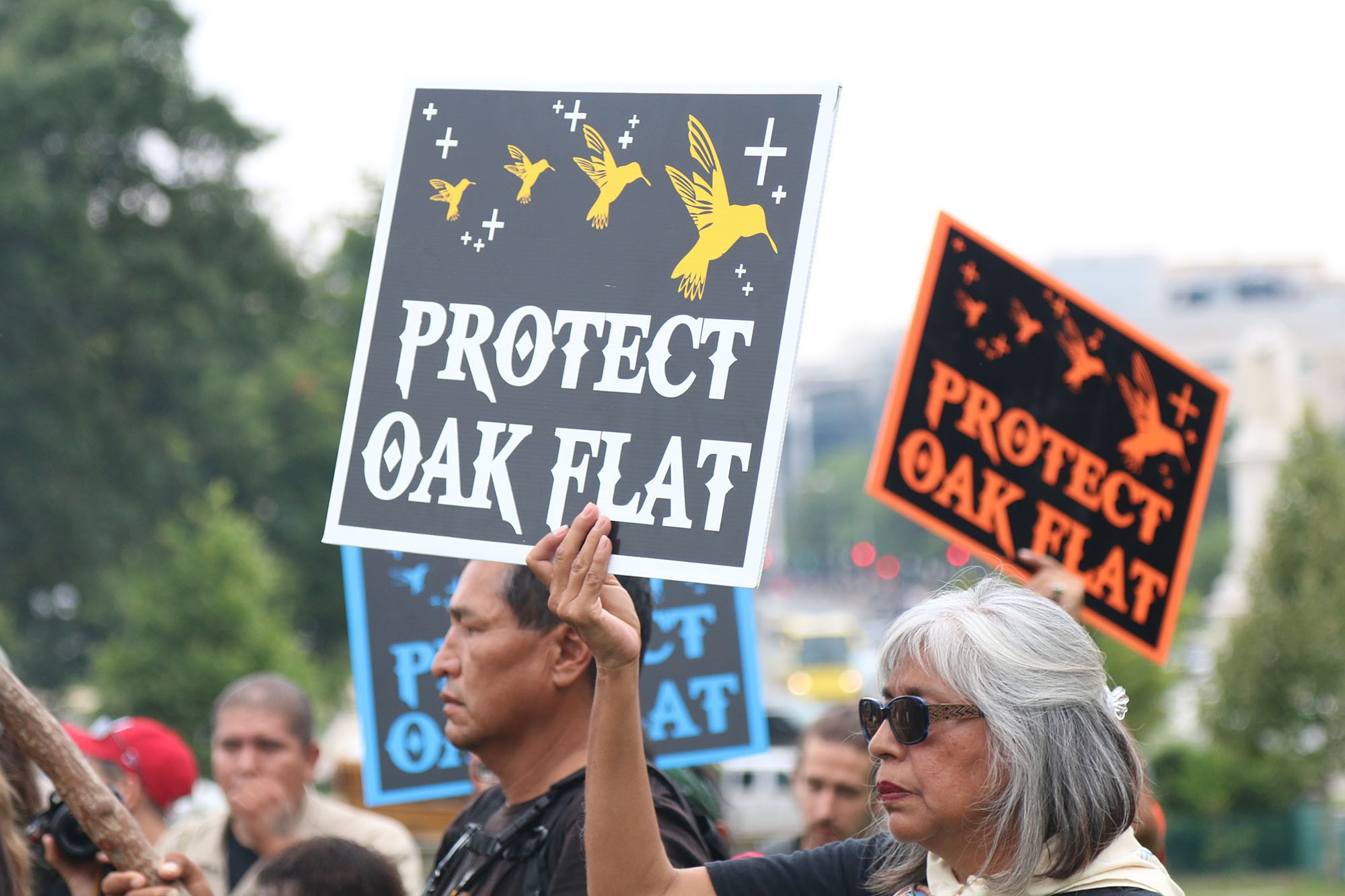The government Monday rescinded its approval for a proposed massive copper mine at Oak Flat, just days before it was to transfer thousands of acres of federal land for the project.
The Department of Agriculture said it ordered the rescission to allow for a “thorough review based on significant input from collaborators, partners and the public” after the Jan. 15 release of a final environmental impact statement on the project.
READ ALSO: Arizona mining industry steps up to meet skyrocketing demand for copper
Critics charged that the Jan. 15 statement had been rushed to beat the incoming Biden administration – but the USDA cited Biden’s Jan. 26 order directing agencies to consult more with tribes as one reason for the reversal.
“I am extremely disappointed in the Administration’s decision to cease progress on Arizona’s Resolution Copper project, which is set to grow jobs and is estimated to create a direct and indirect economic impact of more than $1 billion to Arizona’s economy every year,” said Arizona Gov. Doug Ducey.
San Carlos Apache Chairman Terry Rambler hailed the withdrawal of approval for the mine “the right move.”
“The Resolution copper mine project will desecrate Chich’il Bildagoteel, also known as Oak Flat, which is the heart of our religious and cultural beliefs,” Rambler said in a written statement. He went on to say the “U.S. Forest Service failed to follow the law in the preparation of a sham final environmental impact statement that was used to justify trading away our sacred land to wealthy foreign mining companies.”
Officials with Resolution Copper, the mining company behind the project, did not immediately respond to requests for comment Monday. But mine supporters like Ducey were disappointed in the reversal.
“Undoing lengthy, comprehensive, and already-completed federal environmental studies on a whim with the changing of federal administrations doesn’t work,” Ducey said. “This type of activity threatens an untold number of major projects in Arizona and around the country.”
Ducey said the proposed mine is expected to generate up to 1,450 jobs for workers who would receive $149 million in compensation annually. He said it could be worth about $1 billion a year in direct and indirect economic impact for the state.
In materials on the mine, Resolution says the project could pump $61 billion into the economy over the projected 60-year life of the mine, and annual increases of up to $113 million in state and local taxes in addition to $200 million in federal taxes. At full capacity, it says, the mine could produce up to one-quarter of the nation’s demand for copper.
But critics say that comes at too high a price to the environment and to sacred tribal lands.
“We’re grateful the Biden administration recognized that the fast-tracked environmental analysis was a sham and we know a thorough review will show a mine at Oak Flat will do irreparable damage,” said Randy Serraglio of the Center for Biological Diversity. “These sacred lands should never be handed over to a mining company and we won’t stop until they’re protected for good.”
The land could have been handed over as early as next week, under a congressionally approved swap in which the federal government would have given 2,422 acres of copper-rich land to Resolution Copper in exchange for 5,459 acres of other land in southeast Arizona.
That deal was approved in December 2014, but could not go forward until governmental reviews were completed. The Jan. 15 release of the environmental statement from the Forest Service would have cleared the way for the land exchange – until Monday’s reversal.
In ordering the reversal, the USDA cited President Joe Biden’s memorandum calling for increased tribal consultation, saying it wanted to ensure “the Forest Service has complied with the environmental, cultural, and archaeological analyses required.”
Rep. Raul Grijalva, D-Tucson, praised the order as another step in “ending the cycle of ignoring tribal input whenever it suits polluters.”
“The Trump administration rushed this document out the door as just one more favor to industry, regardless of how legally or scientifically unsupportable it was,” said Grijalva, the chairman of the House Natural Resources Committee, in a prepared statement, adding that the Biden administration “is doing the right thing with this reset.”
Several lawsuits had been filed to block the mine, including one by a group called Apache Stronghold that was appealing its case after a loss at the U.S. District Court level. Luke Goodrich, an attorney with Becket Law, said it was “no coincidence” the reversal came Monday afternoon, just “six hours before its deadline to reply to Apache Stronghold’s emergency appeal.”
“The Government knows the destruction of Oak Flat violates federal law. It knows it can’t justify it in court. So it is retreating – temporarily,” Goodrich said in a statement. “But a temporary retreat doesn’t solve the problem.”
Grijalva said he plans to reintroduce the Save Oak Flat Act, which would stop the project, “to make sure this needless controversy is settled on the side of justice once and for all.”
While he welcomed the reprieve, Michael Nixon, another attorney for Apache Stronghold, said this is not the time to relax.
“Oak Flat is still on death row,” Nixon said. “The Forest Service’s announcement is welcome but doesn’t have much real meaning because they are just changing the execution date so they can coerce and pressure the Apache some more. It is unconscionable.”
Story by Sarah Oven, Cronkite News




